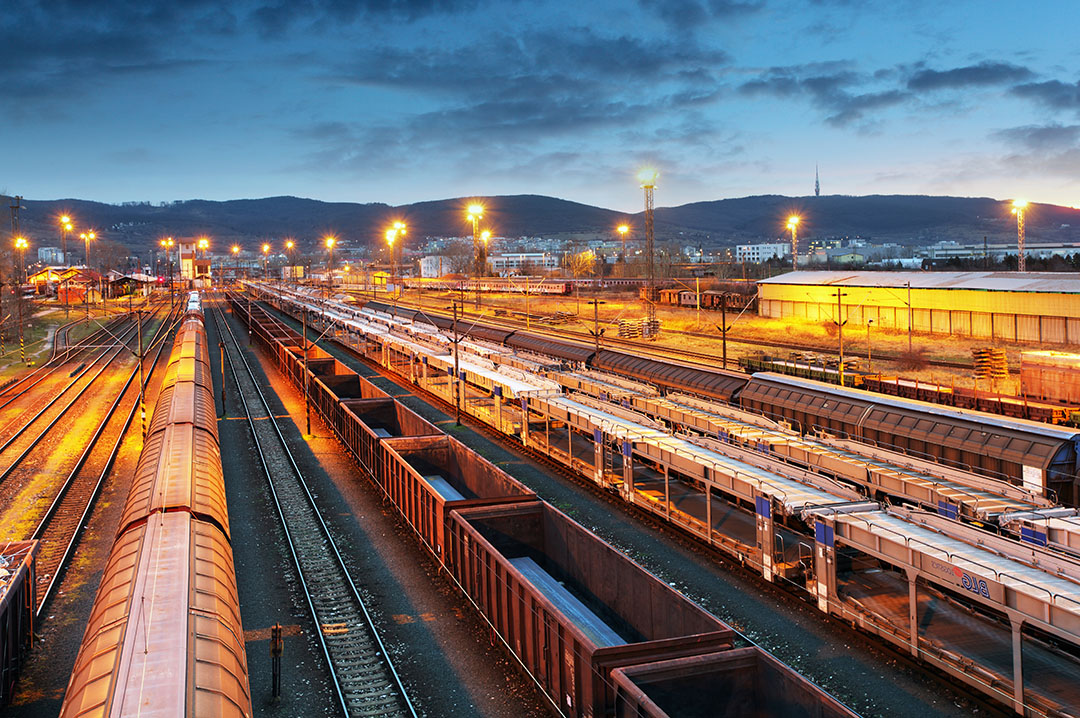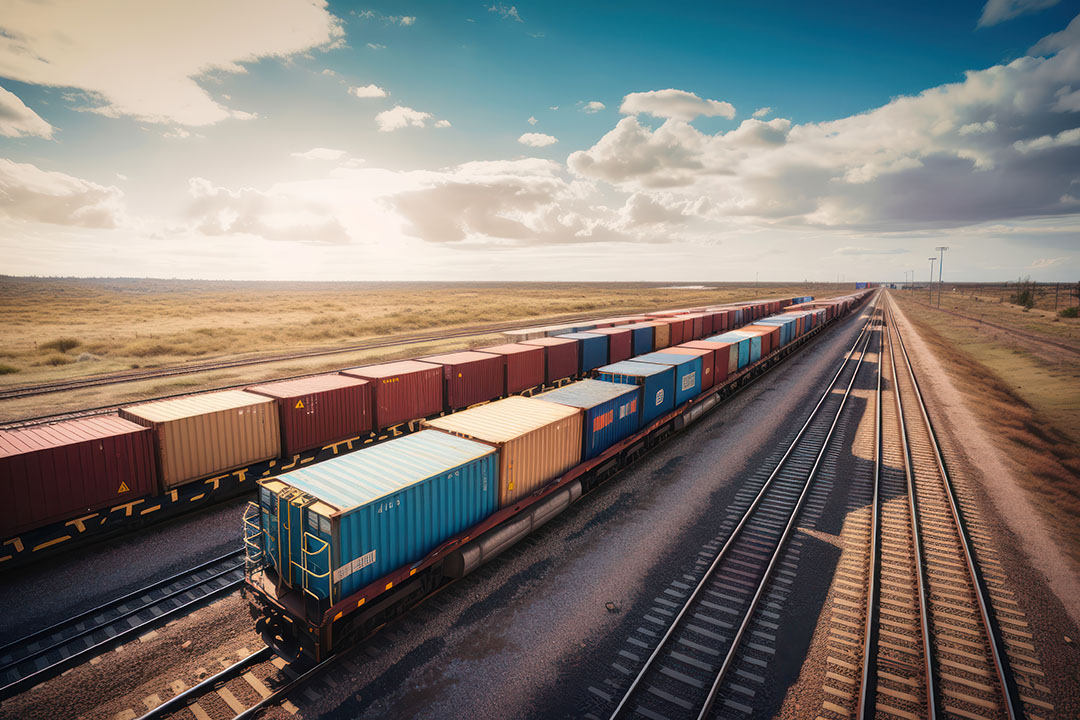Rail forwarding and transport
Outsourcing transport to a rail freight forwarder is preferable when long distances and high shipment weight are involved. Rail transport is the ideal solution for bulk materials, even when they need to be carried to and from the transshipment terminal, which means transport with other modes in addition to rail. And if we do this in an integrated loading unit we are dealing with intermodal transport.
The benefits of rail transport with JAS-FBG:
- Handling of national and international export, import and transit shipments using rail wagons adapted to the type of load;
- Expert advice on transport conditions and regulations, route selection and tariff charges;
- Comprehensive door-to-door intermodal FCL and LCL service (for imports and exports from China, South Korea and Turkey);
- Insurance of outsourced shipments (on request)
- Single wagon, wagon group and full train loads;
- Transports depending on track gauge: in normal and broad gauge wagons;
- Transshipment of goods from broad gauge wagons at transshipment terminals on an LHS line, with specialised equipment adapted to the type of goods to ensure a high quality of service;
- Comprehensive supply chain management, including customs clearance, rail transport, transshipment and delivery of goods to the customer by the chosen mode of transport (intermodal transport);
What is rail freight and what do trains consist of?
A freight train consists of wagons coupled into a set and towed by a locomotive.
What wagons are the goods carried in?
The rail wagons are selected to be compatible with the specified goods; the selection will depend on the type of goods to be shipped. Coal, coke, ore, aggregates, and similar bulk goods, which are not sensitive to weather conditions, are carried in coal wagons that can be standard or specialised (with automatic unloading, for example). The most popular choices for transporting steel products (steel sheets, steel bars, rolled profiles, steel pipes, coils) and timber are platform wagons or specialised covered wagons. Cargo like cereals, animal feed and its components are carried in special grain wagons. If liquid goods need to be carried, we will contact a carrier who operates rail tankers. When should I choose rail transport?
Here are some examples of the strengths of rail transport:
- Carriage of goods by rail over long distances is much faster than shipping by sea;
- Rail transport is significantly less expensive than air transport;
The rail transport sector is green; - Rail transport is much safer than other modes;
- Rail transport enables shipping of quantities of goods in a single run that are much larger than what road transport vehicles can carry.
How is the price of rail transport calculated?
When calculating the costs of rail transport, what needs to be taken into account first is the railway infrastructure; the rate component for access to the railway network is the dominant factor here. Too high a rate component is a ever-present problem faced by this mode of transport and not only in Poland (the railway infrastructure in each country is mostly managed by one company and the average network access rate depends on it). This prevents any real competition based on economic terms with road transport.
An important cost driver in rail transport is the price of electrical power, which is a counterpart to fuel in road transport. Any increase of electrical power price costs extra, just as with fuel for trucks. The type of locomotives (electric or diesel) for freight depends on the railway line, or what traction type is operated by the carrier to the specific destinations.
Transport rates and extra charges are specified by rail carriers in their freight tariffs. When signing a contract for rail transport with a carrier, freight forwarders get a certain discounts on tariff rates; the depth of discount depends on the weight of goods declared for carriage in a certain period. The customer usually receives a quotation from the freight forwarder for a comprehensive transport and forwarding service including rail freight, transshipment if necessary, last-mile delivery (which is usually done with trucks), as well as additional charges. However, some of the additional charges for transport cannot be predicted, like the costs of freight wagon stop at the consignment station, the destination station, or transshipment stations (for international destinations), additional locomotive shunting, or additions/changes in the waybills. These costs are effectively reinvoiced to the customer.
If you are thinking about having your goods shipped by rail, send us your request for quotation.


.
Always on right track
Locations
List of locations
Katowice
rail forwarding
- Adress: 40-706 Katowice, Kolejowa 17
- Phone: +48 32 359 34 07
- E-mail: spedycja.kolejowa@jasfbg.pl


